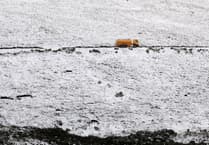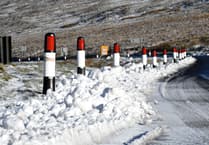A study into the genealogical make up of Manx surnames is producing some interesting results.
The research is being conducted by John Creer, a retired pharmaceutical company manager and magistrate living in Cheshire, with direct Manx ancestry.
He first undertook a study on his own family name, which showed they descended from one man who lived around 1200 to 1400.
In 2010 he started to try to understand the genetic origins of the early male Manx population.
The Manx names he is studying are those that appear in the 1511 Manx manorial rolls.
Through this analysis, it is hoped, a greater knowledge of Manx origins can be gained, as well as when they came to the island.
To achieve this, the Y-chromosone, which passes down largely unchanged from father to son, is identified allowing researches to track male holders of a family name.
Whilst the Y-chromosone is largely unchanged, there is sufficient mutation to allow for ’identifying and tracking different branches of the same family over the past 700 to 800 years.
This time frame is key as it is within this time when surnames were first being used to distinguish between families.
So far, his key findings are that ’in the immediate period after Scandinavian occupation of the Isle of Man (800 to 1265AD) 25% of the male population were of Scandinavian or north European origin.
The remaining 75% are from neighbouring areas - Ireland, Scotland and England’.
While researching this, Mr Creer discovered that surnames considered to be Manx - such as Kelly, Curphey, Kennaugh and Bridson - can be shown to be almost certainly unique in origin to the island.
Further to this, ’different variations of the same original Manx family name, which are popularly assumed to be equivalent, e.g Karran/Carran, are indeed the same family’.
On his website www.manxdna.co.uk Mr Creer states these ’origins can be traced back to earlier Manx Gaelic forms usually starting in "Mac" or "Mc" - meaning in Gaelic "son of"’.
He says the research is totally self-funded, paid for by participants and well-wishers without any formal direct support from any Manx government body or agency, despite many appeals for support.
To continue the progress that has been made, Mr Creer is still urgently seeking men with the following surnames:
Callin, Cannon, Cleator, Cojeen, Corkish, Cottier, Cregeen, Crennell, Cringle, Hudson/Hutchen, Kermeen, Kissack, Martin, Moughtin, Mylechraine, Quaggan/Quaggin, Quilleash, Quark, Skelly, Skinner and Skillicorn.
Any man with these surnames who wishes to assist in his study is invited to contact Mr Creer at [email protected]




